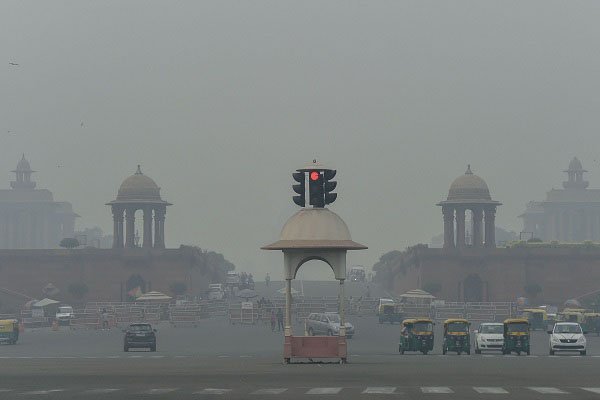On Saturday morning, Delhi’s air quality was reported as ‘poor,’ with an Air Quality Index (AQI) of 266, according to data from the System of Air Quality and Weather Forecasting and Research (SAFAR-India). The AQI provides crucial information about air quality conditions and their potential health impacts.
At 7.01 a.m., the AQI at Lodhi Road was recorded at 211, indicating a ‘poor’ air quality level, while in the Pusa Road area, it stood at 193, classifying it as ‘moderate.’ Gurugram registered an AQI of 162, falling into the ‘moderate’ category. In contrast, the AQI at the Delhi Airport (T3) reached 286, placing it in the ‘poor’ category.
Near Delhi University, the air quality was measured at an AQI of 331, classified as ‘very poor.’ In Noida (Uttar Pradesh), the AQI reached 283, also marking it as ‘poor.’
In Ayanagar, the air quality was determined to be ‘poor’ with an AQI of 201, while the Mathura Road area recorded an AQI of 179, which is considered ‘moderate.’ The IIT Delhi area displayed an AQI of 215, and Dhirpur recorded an AQI of 329, indicating a ‘very poor’ air quality level.
The AQI scale simplifies communication about air quality conditions using easily understandable categories. These six AQI categories include ‘Good,’ ‘Satisfactory,’ ‘Moderately Polluted,’ ‘Poor,’ ‘Very Poor,’ and ‘Severe,’ with classification based on the concentration levels of air pollutants and their potential health impacts, known as health breakpoints.
As per the AQI scale, air quality ranging from 0 to 50 is labeled as ‘good,’ 51 to 100 as ‘satisfactory,’ 101 to 200 as ‘moderate,’ 201 to 300 as ‘poor,’ 301 to 400 as ‘very poor,’ and 401 to 450 as ‘severe.’ The term ‘severe’ is employed when the AQI surpasses 450.
Delhi has been actively working to improve its air quality, with recent reports indicating significant progress. In 2022, the air quality in the city improved by 8%. In 2023, the improvement has reached 31%. A report highlighted that in the last eight years, excluding the COVID period, Delhi’s air quality has shown marked improvements.
To address air pollution concerns, the National Air Quality Committee issued instructions to authorities in the National Capital Region, including prohibiting coal consumption in hotels and eateries. Penalties were also recommended for industries and thermal power plants contributing to pollution. These measures are part of the ‘Graded Response Action Plan’ (GRAP), the government’s pollution control strategy implemented in the Delhi-NCR region during the winter season to address air pollution issues.
The ongoing efforts to monitor and improve air quality underscore the importance of addressing environmental challenges and safeguarding public health in the region.
